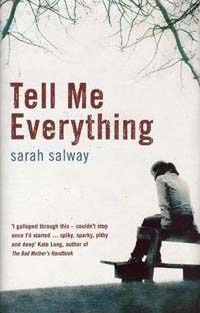 I've been seized by a bout of non-fiction reading. I was going to claim this was a rarity for me, but that's really not true. I had been reading plenty of non-fiction the past few years, but most of it was assigned for class. Now that I'm done with classes, I can read the non-fiction I choose and I made a good choice in David McCullough's latest, The Greater Journey - Americans in Paris.
I've been seized by a bout of non-fiction reading. I was going to claim this was a rarity for me, but that's really not true. I had been reading plenty of non-fiction the past few years, but most of it was assigned for class. Now that I'm done with classes, I can read the non-fiction I choose and I made a good choice in David McCullough's latest, The Greater Journey - Americans in Paris. This is an unusual history in that it doesn't so much focus on names, dates, and events of a single place or movement as on a swath of time, 1830 - 1900, in which France underwent great political change, and the influence of that time upon individual American artists, political figures, inventors, and doctors - the men and women of ideas. In that time, France's Second Republic underwent a coup d'etat by Louis Napoleon, the nephew of Napoleon Bonaparte, resulting in the creation of the Second Empire. The city of Paris was given a grand overhaul under the charge of Georges-Eugene Haussmann, one whose basic plan survives today. Paris underwent a siege by Germany, and the bloody reign of the Paris Commune, liberated by the establishment of a Third Republic, which lasted until the French government collaborated with the Nazis in the formation of the Vichy government. However, none of these events are, themselves, the point of McCullough's narrative. McCullough portrays Parisian culture in that tumultuous time as remarkably stable in its influence. It was a city known for great painters, sculptors and writers, and for the quality of education available in the arts, medicine, law, and the sciences. Paris was the center of a highly developed culture which included not only arts and sciences, but a renowned cuisine. Really Paris was a place devoted to the art of living. In many ways it still is. The thrust of McCullough's book focuses on the ways in which exposure to such a way of life through a visit to Paris was an important component of a good American education. The Greater Journey is the story of the way Parisian life influenced Americans like painters Samuel Morse, John Singer Sargent and Mary Cassatt, sculptor Augustus Saint-Gaudens, writers James Fenimore Cooper, Henry James, and Harriet Beecher Stowe, and medical students Oliver Wendell Holmes and Elizabeth Blackwell. As well as the mutual influence of the French and American governments and of their statesmen. Charles Sumner, the great American lawyer and early spokesman for the abolition of slavery, was profoundly influenced by his time in Paris studying at the Sorbonne and the free black men and women he encountered both as fellow students and in the rest of daily life, an experience which proved revelatory for him. The diary of American ambassador Elihu Washburne was, until now, an unknown primary source of the Siege of Paris. It is one McCullough relies on heavily in chapters integrating Washburne's life story with the history of that decisive political standoff.
This synthesis is the success of The Greater Journey throughout. It is less a traditional history of government figures, acts, and battles, than it is a series of short, intertwined biographies set in the context of history. Though some of its key figures might be considered secondary characters in the feature film treatment American education, film and television gives to history - painter George P. A. Healy, pianist Louis Moreau Gottschalk and feminist Margaret Fuller are not exactly household names - each one of their stories became interesting as McCullough showed them swept up in the tidal wave of nineteenth-century Parisian art and ideas. I didn't even know that I would want to know their stories, but I found myself easily reading 60 - 70 pages in a sitting and eager to return. Sweeps of influence are at least as important to the consideration of the lessons we can derive from the history of a person or time as the toe-nail-clippings-and-all variety. McCullough makes coherent narrative out of a collection of disparate lives as they were influenced by a place that was itself influenced by great changes in its physical landscape and architecture, and its form of government. The Greater Journey is a reminder that, amidst the cataclysmic rhetoric we Americans hear on an a daily basis about our security, our economy, and the danger of the evil other party from our power-obsessed political representatives, great cultures survive strong upheaval. Large parts of Paris were burned to the ground in the 1871 siege and more than 50,000 lives were tragically lost, yet the government reorganized and Paris rebuilt, and the 1889 World's Fair was attended by millions who came to visit one of the most beautiful and influential cities in the world.
My earlier post about this book is here.









2 comments:
I've had this on my list since I heard about it around the time it was first published. After reading your post, I decided to go to the library's website and reserve the book. I'll have to wait a while though -- looks like there are 76 people in queue ahead of me.
Hi Cam - Once you get there, I think you will get a lot out of it. A wonderful history of ideas and lives.
Post a Comment